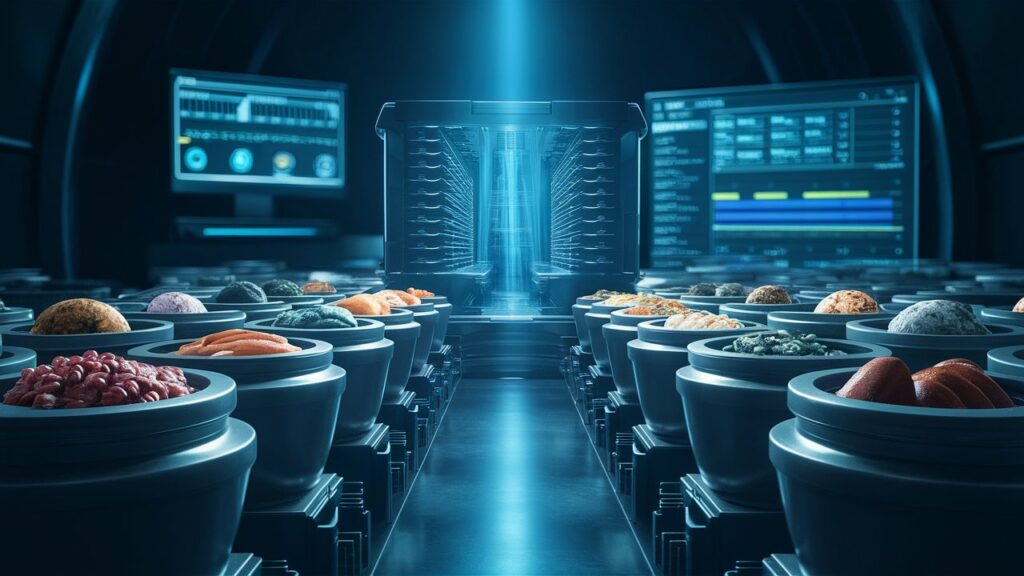Currently, the preservation of frozen foods faces critical challenges related to energy efficiency, product quality, and sustainability. With the increasing demand for solutions that minimize food waste and reduce energy consumption, the industry must innovate to offer more advanced technologies. EXKAL has developed a disruptive approach with its 5th Generation of Frozen Cabinets, setting a new standard in frozen food preservation.

The Importance of Temperature Uniformity
One of the main issues in frozen food preservation is temperature variability, which directly impacts product quality. Thermal fluctuations can cause the recrystallization of water in foods, deteriorating their texture, flavor, and nutritional value. Therefore, maintaining uniform temperature is essential to ensure better food preservation.
Innovations in EXKAL’s 5th Generation Cabinets
The new EXKAL frozen cabinets incorporate disruptive improvements in three key areas:
- Greater temperature uniformity: Thermal variation over a 24-hour cycle has been reduced to less than 4°C, improving product quality and reducing ice crystal formation.
• Optimized energy efficiency: A 20% improvement in energy consumption has been achieved, along with a 13% reduction in refrigeration needs.
• Ergonomic and sustainable design: Enhanced product visibility, lower environmental impact, and reduced food waste.
Thanks to these advancements, the new EXKAL refrigeration system achieves a Category C rating in the Energy Efficiency Index (EEI), marking a significant evolution compared to traditional systems.
New Trends in Frozen Food Preservation

In a constantly evolving world, food preservation strategies are also changing. Some major retail chains are adjusting the temperature of their frozen products from -18°C to -15°C to optimize energy consumption without affecting product quality. Additionally, ice cream manufacturers are developing products for storage at -12°C, achieving energy savings of up to 20%.
Along these lines, EXKAL is exploring the innovative Supercooling technology, which allows food to remain fresh at subzero temperatures without forming ice crystals. This technology extends product shelf life and prevents the typical deterioration caused by traditional freezing, shaping the future of cold chain food preservation.
Conclusion
The preservation of frozen foods is undergoing a major transformation, where innovation plays a fundamental role in improving energy efficiency, reducing food waste, and ensuring product quality. EXKAL’s 5th Generation of Frozen Cabinets represents a significant advancement in this field, offering technological solutions that optimize refrigeration and establish new sustainability standards.
With the development of new technologies like Supercooling, EXKAL continues to position itself as a leader in the industry, paving the way for a more efficient and sustainable future in frozen food preservation.


